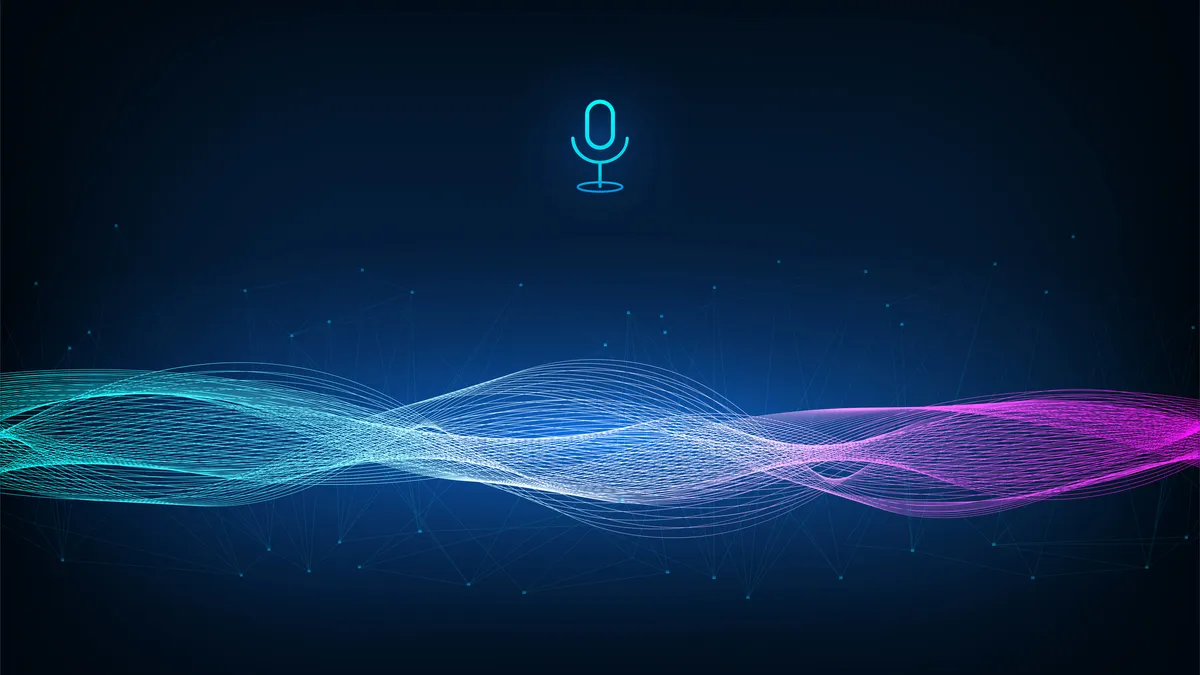Opening an internal investigation is a serious matter so general counsel could find it useful to use AI to get a gut check on the validity of a whistleblower’s claim. That’s one of the use cases David Pope is hoping he can sell next year when his company, Speech Craft Analytics, rolls out voice analysis tools with use cases for the legal profession.
“We’re always trying to discern whether the speaker means what they say and what they mean when they say what they say,” Pope told Legal Dive.
The big use of Speech Craft’s technology, which analyzes the tone, pitch, speech patterns and other emotion markers of people talking, is expected to be in depositions.
It’s envisioned that attorneys would use the AI-based tools to flag comments people make when they’re deposed that could be indicators of unspoken meaning that warrant a closer look.
“We’re brought up to be quite good at the words we use, but we’re not so good, without training, at modulating our voices,” said Pope, the company’s founder. “We don’t have command over our voice, particularly in times of stress.”
The company is putting the finishing touches on two tools, one a dashboard and the other a SaaS application, that attorneys can use to analyze depositions and other videos and their transcripts for indicators of the emotions behind what people are saying.
The usefulness of analyzing the emotions behind people’s responses in depositions might be evident but Pope, a veteran capital markets quantitative analyst, thinks there’s also a use case for in-house attorneys, starting with internal investigations.
“Whenever you have a recorded conversation about internal disputes, maybe over compliance issues or HR-related issues, [it can be useful to have a] tool to better ascertain if there’s nervousness where there shouldn’t be nervousness or confidence where there should be confidence,” he said.
Nervous executives
The company’s first clients are investors and hedge funds that want to go beyond what executives are saying on earnings calls to learn what’s not being said.
“There are very few lies of commission” on these calls, he said. “There are quite a few lies of omission.”
One client used the technology to examine several earnings calls hosted by big banks in the third quarter of this year, when the outlook was mainly positive, but the software flagged a lot of underlying nervousness in the executives.
“Regulation, the interest rate spread between deposits and loans, headcount reductions – we were able to measure across the major banks the areas of most concern by management,” he said.
To make the technology work, the company creates a baseline of what someone should sound like, taking into account factors like where they’re from, whether they’re male or female or talking inside or outside, among dozens of variables. It then uses the software to flag where people are talking faster or louder or with more wavering or other modulations than they should be based on the baseline.
The attorney or other user can then go back to the flagged areas and, if it’s a deposition, watch the tape again and analyze the audio track, to dig deeper into the deviation from the norm.
In a novel experiment, the software had been used to see if Russian President Vladimir Putin is using body doubles based on the deviation in remarks “Putin” had been recorded making from official, validated remarks that Putin had made. Based on the analysis, there’s a good chance that Putin is using body doubles.
“Vocal biometrics are like fingerprints,” he said. “Stylistically, different speakers [acting as Putin] is highly likely.”
Big brokerages are already using these kinds of analyses to help them make sure a person calling about their account is actually the account holder. Call centers for brokerages and other types of companies, he said, are the biggest use case of the technology right now.
But use by attorneys is a logical next step, which is why his company will try marketing to firms and in-house teams early next year when it rolls out its dashboard and SaaS tool.
“The law is a new area,” he said. “I’m not aware of anybody using this type of technology in this area, but I think it makes logical sense.”











